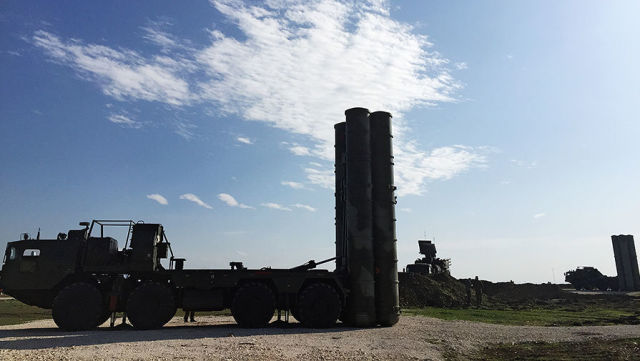Us assistant Secretary of state threatened sanctions for purchasing weapons from Russia or China
The US is again talking about sanctions in response to the acquisition of military equipment by other countries from Russia and China. This time, Iraq came into view, having recently expressed a desire to do so. Until now, the question remains open about the acquisition of Russian s-400 air defense systems by Ankara: Washington still intends to impose sanctions on Turkey for this.
States that acquire weapons systems from Russia and China risk being sanctioned by the United States, Clark Cooper, assistant Secretary of state for military and political Affairs, warned during a telephone briefing.
"There is a CAATSA law ("on countering America's adversaries through sanctions") and it can, of course, be applied. Systems, platforms, or technologies in Moscow or Beijing cannot interact with our systems and do not meet the conditions for interaction between our partners and the United States in the field of security," Cooper said.
The corresponding intention of Baghdad became known a little more than a week ago. "We need powerful air defense systems, and the Americans have disappointed us many times by not helping us deliver the necessary weapons," Karim Alawi, a member of the Iraqi Parliament's security and defense Committee, told the Wall Street Journal.
He explained that due to the sharply escalated situation in the middle East and the demand for the withdrawal of foreign troops from Iraq, the Iraqi Parliament authorized the new Prime Minister to purchase air defense systems "from Russia or anyone else."
In his speech, Cooper also raised the issue of the consequences of the purchase of the Russian s-400 anti-aircraft missile system by Turkey.
"Turkey is a member of NATO, and the task of the United States is to work with Turkey to ensure that it remains part of the Western Alliance. As for attempts to acquire equipment from Russia or China, as I have already said, there is a threat of sanctions and there is no time frame for their application, and the scale can be different and applied by different administrations, " he warned.
According to him, the States with which the United States interacts in the field of security are aware of the need to have systems that can interact with American ones.
"Some may want to buy rusty in Russia or cheap in China, but we are the most preferred partners," Cooper said.
The question of possible sanctions for Turkey's purchase of weapons from Russia was raised a few days earlier. The bill's restrictive measures are laid down in the draft defense budget of the state for the 2021 fiscal year, which began on October 1, agreed by both houses of the United States Congress.
"No later than 30 days after the entry into force of this law, the President [of the United States] must impose five or more of the restrictive measures specified in section 235 of the law "on countering America's adversaries through sanctions" against each person who knowingly participated in the acquisition of S-400 systems," the document distributed on December 3 emphasized.
At the same time, Turkish foreign Minister Mevlut Cavusoglu expressed hope that Ankara will discuss the purchase of Russian s-400 air defense systems under the new us administration.
"During the previous US administration, we had an issue with the S-400. Presidents (Of Turkey Recep Tayyip) Erdogan and (US Donald) trump had a good dialogue and had a Frank relationship, discussing all the problems. Unfortunately, the problem remains, "the foreign Minister said during a speech at the international forum"Mediterranean dialogues".
According to him, while Ankara is interested in S-400 systems, no one reminds Washington and other allies why they did not sell air defense systems for ten years and recalled Patriot complexes when the Turkish side especially needed them.
"All we need from the current or future administration is to take part in resolving the issue through dialogue instead of the language of threats and sanctions," the Minister stated.
Lydia Misnik

